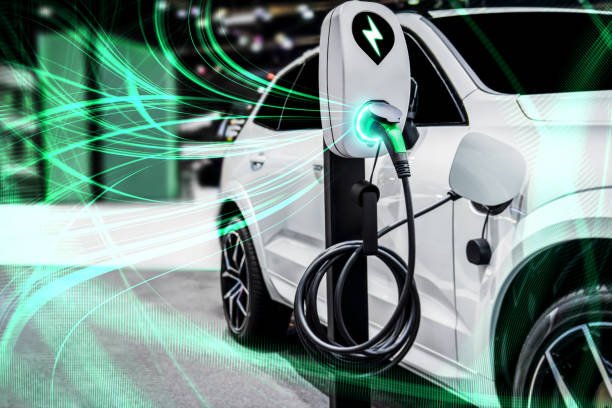In recent years, the automotive industry has witnessed a monumental shift towards sustainable and eco-friendly alternatives, with electric cars emerging as the frontrunners in this green revolution. As concerns over climate change and environmental degradation intensify, the adoption of electric vehicles (EVs) has become more than just a trend – it’s a pivotal step towards a cleaner, greener future.
One of the primary advantages of electric cars lies in their positive impact on the environment. Unlike traditional internal combustion engine vehicles that rely on fossil fuels, electric cars produce zero tailpipe emissions. This translates to a significant reduction in air pollution, a major contributor to global warming and respiratory issues. As governments worldwide commit to carbon neutrality goals, the widespread adoption of electric vehicles plays a crucial role in achieving these ambitious targets.
Beyond environmental benefits, electric cars are revolutionizing the driving experience. The advancements in battery technology have led to longer ranges, faster charging times, and improved overall performance. Electric vehicles are no longer limited to short commutes, as many models now boast impressive ranges that rival their gasoline counterparts. Fast-charging infrastructure is also expanding rapidly, addressing one of the initial concerns about EVs – range anxiety.
The cost savings associated with electric cars are another compelling factor driving their adoption. While the upfront cost of an electric vehicle may still be higher than a traditional car, the long-term savings on fuel and maintenance are substantial. Electric cars generally have fewer moving parts, resulting in lower maintenance costs, and the price of electricity for charging is often significantly lower than gasoline. Government incentives and tax credits further sweeten the deal, making electric cars an attractive and financially viable option for many consumers.
The automotive industry’s shift towards electric vehicles is not only fueled by environmental and economic considerations but also by technological advancements. Autonomous driving features, connectivity, and smart integration are becoming standard in electric cars, offering a glimpse into the future of transportation. Electric cars are not just means of getting from point A to point B; they are becoming sophisticated tech hubs on wheels, transforming the entire driving experience.
Challenges do exist on the path to widespread electric vehicle adoption. Infrastructure development, battery disposal, and the environmental impact of raw material extraction for batteries are among the concerns that need careful consideration. However, as technology and awareness evolve, addressing these challenges becomes an integral part of shaping a sustainable future for electric transportation.
In conclusion, electric cars are more than a fleeting trend – they represent a transformative force in the automotive industry and beyond. With their environmental benefits, enhanced driving experience, and cost savings, electric vehicles are poised to become the norm rather than the exception. As we charge towards a cleaner and more sustainable future, the rise of electric cars marks a pivotal moment in the evolution of transportation.




